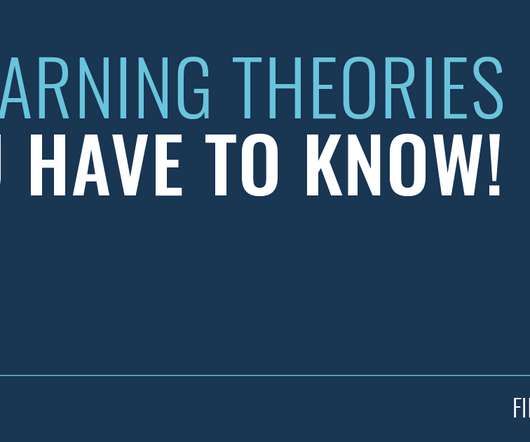5 Learning Theories You HAVE to Know!
Growth Engineering
MAY 6, 2021
Like with fingerprints, our brains are all unique. This is why there are a number of different ways we learn, leading to learning theories. Here we will focus on the five most commonly used learning theories and how they should affect your learning and development programmes. The post 5 Learning Theories You HAVE To Know!
















Let's personalize your content